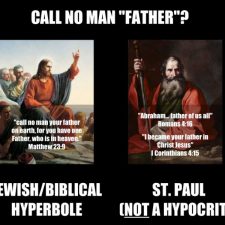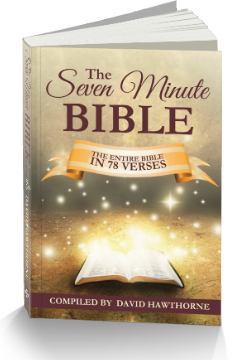General
As an Orthodox Christian who holds a deep appreciation for the Christian Roman Republic while also cherishing the principles of Jeffersonian federal democracy, I find myself reflecting on the complexities of governance in both contexts. Many in the Orthodox community tend to romanticize monarchy, often overlooking the fact that the Christian Roman Empire was fundamentally a republic—a monarchical republic, to be sure, but one that most Byzantines viewed as a system of shared governance rather than an absolute monarchy. This system was not solely sacred; it also embraced secular elements, balancing divine authority with practical administration. Moreover, the dangers of democratic majoritarian rule were recognized… Continue reading
As we approach Great Lent, the Orthodox Christian Church offers a series of Sundays that lead us into this sacred season. Each Sunday serves as a poignant reminder of our spiritual journey and invites us to reflect on our lives, our relationship with God, and the call to repentance and humility. Through the stories and teachings of these Sundays, the Church emphasizes themes of redemption, self-examination, and the love of Christ, encouraging us to prepare our hearts for the transformative experience of Lent.
Zaccheus Sunday introduces us to the story of Zaccheus, a tax collector who climbs a sycamore tree to see Jesus as He… Continue reading
Yesterday, February 23, we celebrated the feast day of St. Polycarp, a revered Bishop of Smyrna and one of the earliest Church fathers and martyrs, who lived from 69 to 155 AD. His significance as a witness to the faith is profound, particularly because he was taught by the original Apostles, especially St. John, and had conversed with those who had witnessed Jesus Christ. St. Polycarp received his episcopate directly from the Apostles, making his teachings a vital link to the early Church.
As an Orthodox Christian, I find great inspiration in Polycarp’s writings, especially his Epistle to the Philippians. His insights were pivotal in… Continue reading
In the life of the Church, controversies often arise that can be challenging to navigate, especially for those without access to a library filled with the writings of the Church Fathers and the rich history of the Church. One such pressing issue is how to receive converts who have been baptized in heterodox communions into the Orthodox Church. This question raises fundamental concerns: Should these individuals be baptized again? Should they be received through chrismation? Or is it sufficient for them to confess their faith, renounce their previous beliefs, and partake in the Eucharist?
Historically, the Orthodox Church has maintained the norm of receiving those… Continue reading
In the realm of Orthodox Christianity, discussions surrounding baptism and the nature of sacraments can be deeply polarizing. A particularly contentious issue arose within the Russian Orthodox Church Outside Russia (ROCOR) during the leadership of Metropolitan Philaret (Voznesensky), who was First Hierarch of the Russian Orthodox Church Outside of Russia from 1964 until 1985 regarding the practice of corrective baptism. This practice involves rebaptizing individuals who were previously received into the Church through chrismation, often due to concerns about the validity of their initial reception.
The Context of Corrective Baptism
Corrective baptism, in this instance, refers to the rebaptism of those who had been chrismated,… Continue reading
In American Orthodoxy over the last several decades, a contentious issue has emerged regarding the reception of converts from other Christian communions into the Orthodox Church.
Some individuals advocate for the baptism of virtually every Christian, while the majority of Orthodox Christians in America adhere to the traditional belief and practice upheld by nearly all Orthodox jurisdictions worldwide. This practice has deep historical roots, dating back to the earliest centuries of the Church. The issue was notably settled in the third century during the debates between Sts. Stephen and Cyprian. It was further solidified when the phrase “I believe in one baptism” was added to… Continue reading
This last Sunday was the Feast of St. Luke. It was more than coincidence I think that I happened across a couple of verses from his Gospel that I look at very differently now than when I was a Protestant.
The verses in question are Luke 11:27-28, “As he said this, a woman in the crowd raised her voice and said to him, ‘Blessed is the womb that bore you, and the breasts that you nursed!’ But he said, ‘Blessed rather are those who hear the word of God and keep it!’”
In my Baptist days, I was taught that this cut across Roman Catholic… Continue reading
Finished up Tobit the night before last. It is always a favorite book to reread because it is such a good story, it has a strong Christological spiritual sense, and it is one of the few places in the Scriptures where dogs are given a positive presence.
In most other places in the Bible, dogs get a bad rap. To be called a dog, a dog’s head, or a dead dog was an insult. Dogs were unclean and ate unclean things- sometimes even human carrion. Apparently, packs of feral dogs roamed in urban areas back then (Ps. 58:7, 15 and Ps. 21:17, 21 [that’s Psalms… Continue reading
A RC in one of my forums asked why Orthodox find Purgatory objectionable when we also pray for our departed:
One chief difference between the RC and Orthodox views on the Intermediate State is that we don’t go for the whole purgatorial fires thing.
In RC purgatory, forgiven sins are still being punished in some way, while in the Orthodox view forgiven sins are forgiven and the damage it caused is being healed in a place of refreshment. RC descriptions of purgatory, especially before Vatican 2 often presented it as horrible as hell but just with a time limit. We do not accept such a… Continue reading
Gospel: Today the Church’s Lectionary lands us near the end of the Sermon on the Mount,
“15 Beware of false prophets, which come to you in sheep’s clothing, but inwardly they are ravening wolves. 16 Ye shall know them by their fruits. Do men gather grapes of thorns, or figs of thistles? 17 Even so every good tree bringeth forth good fruit; but a corrupt tree bringeth forth evil fruit. 18 A good tree cannot bring forth evil fruit, neither can a corrupt tree bring forth good fruit. 19 Every tree that bringeth not forth good fruit is hewn down, and cast into the fire.… Continue reading
“For the man in Christ, the antinomies of the mind are not irreconcilable opposites; they are simply ruptures caused by the upheaval of original sin in man.
Uniting himself to Christ, man feels in himself a coming-together of fragmented parts, a healing of the intellect, a wholeness and integration that make him capable of integrated understanding.”
-from The Theory of Knowledge According to St. Isaac the Syrian
St. Isaac’s gnoseology held that there were three degrees of knowledge in ascending order of importance.
The First Degree ranges from our animal appetites up to our rational skills in the arts and sciences and is concerned solely… Continue reading
In reading Darwin’s Autobiography and his other writings, public and personal, I think a good summary of the evolution of Charles Darwin’s metaphysical/ religious views would be as follows:
Up to 1830- His seminary days he was a Biblical literalist and a big fan of Paley’s arguments. He says in his Autobiography that at this time, “I did not then in the least doubt the strict and literal truth of every word in the Bible.” During his seminary years he developed a love for science and became an Old Earth Creationist.
1831-1836: His Christian faith was “quite orthodox” in his own words when he boarded… Continue reading
Had a fundamentalist attack me this morning because I did not follow biblical principles when reading the Bible. When I asked him what those principles were he said he did not have a list he just “knew it when he saw it.”
So it got me to thinking, “What ARE my general principles when reading the Bible?” So this morning over coffee I put together a list of ten principles I have learned from the ancient Christians as to how to read the Bible properly.
When reading ancient texts it is best to read them as ancient people wrote and understood them and not in… Continue reading
One very common objection to the Orthodox Catholic Faith is that we refer to our priests as “Father”. And at first glance it seems that those who criticize us for this practice have a case from the Bible. When this charge is brought up our interlocutors have in mind the words of Christ in Matthew 23:8-10, “But you are not to be called rabbi, for you have one teacher, and you are all brethren. And call no man your father on earth, for you have one Father, who is in heaven. Neither be called masters, for you have one master, the Christ.”
Seems clear cut… Continue reading
Here are a few reasons I believe naturalism undermines rationality and ends up being self-defeating under the claim that the natural world/matter is all there is:
To begin with, naturalism/materialism is one of the most primitive philosophies there is and was popular with the pre-Socratic philosophers until refuted by Socrates, Plato and Aristotle. It has only gained resurgence to the extent modern people have forgotten these great philosophers and their clear thinking on this issue.
The idea of the materialist is that matter is all there is and the universe is causally closed. Everything is to be explained solely in terms of physics, matter and… Continue reading

















